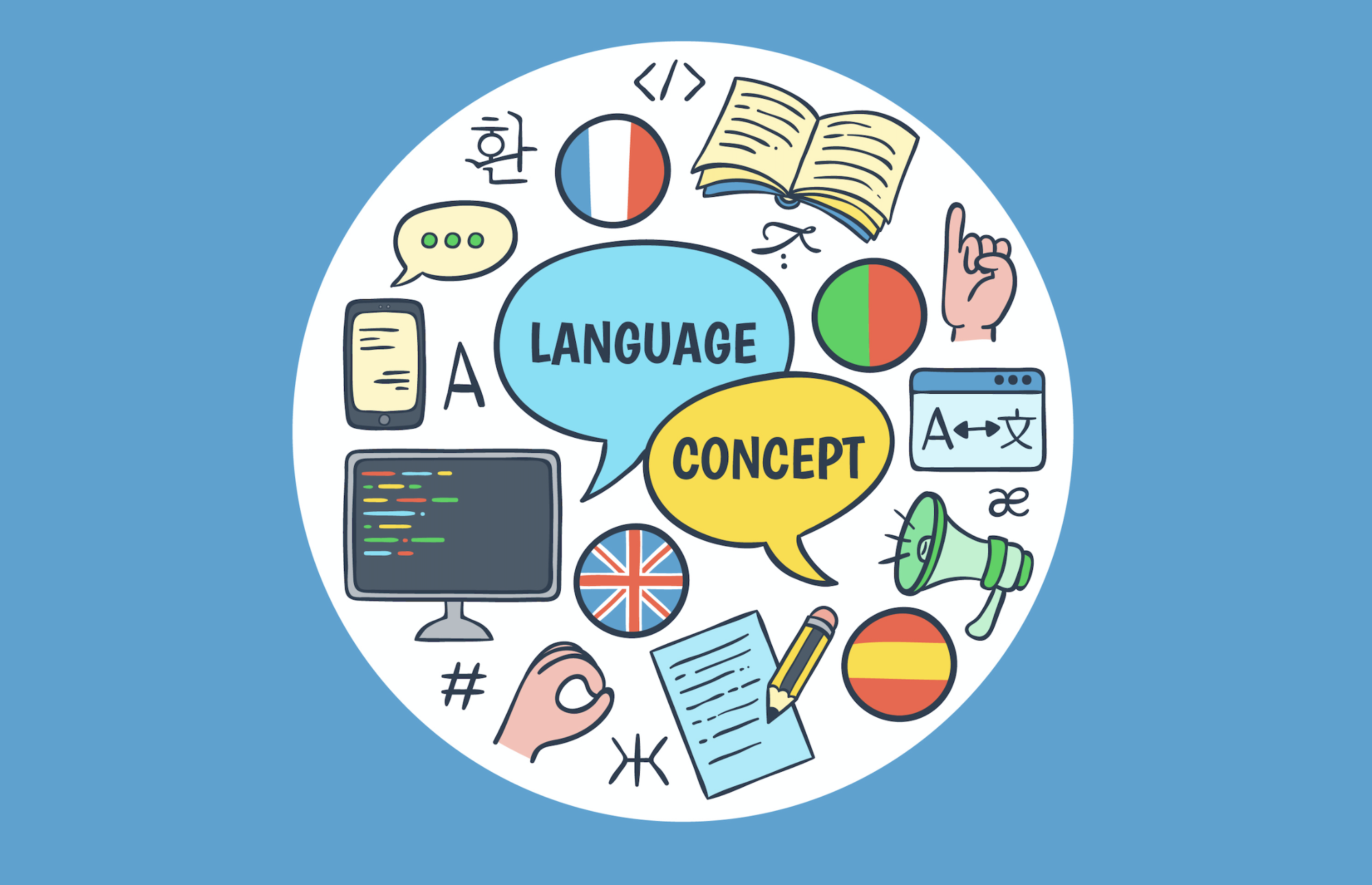
The long-held belief that language learning is a pursuit best left to the young has unfortunately deterred many adults from exploring the rich world of a new tongue. For decades, it’s been widely assumed that after a certain age, our brains lose their plasticity, making the intricate dance of new grammar, vocabulary, and pronunciation an almost insurmountable challenge. This pervasive myth has silently thwarted countless potential polyglots, perpetuating the discouraging adage that “you can’t teach an old dog new tricks.”
However, modern scientific understanding is increasingly challenging this outdated narrative. Far from being a rigid, unchanging organ, the human brain possesses a remarkable capacity for constant evolution and higher learning, irrespective of age. Research suggests that adults, in many respects, are exceptionally well-equipped for language acquisition, often leveraging a lifetime of experience, enhanced self-regulation, and focused intent that younger learners have yet to develop.
So, if you’ve ever dreamt of conversing in another language, or simply wanted to boost your brainpower, prepare to shatter those self-limiting beliefs. Learning a new language isn’t just possible after 40; it’s a profoundly rewarding journey that unlocks a cascade of surprising benefits for your cognitive health, social life, and overall well-being. Let’s explore the first seven powerful ways that embracing a foreign language can truly transform your life.

1. **Challenging the “Old Dog, New Tricks” Myth**For too long, the idea that our capacity for learning complex skills like languages diminishes significantly with age has been a formidable psychological barrier. This pervasive myth, often summed up by the “old dog, new tricks” adage, implies a mental rigidity that simply doesn’t hold true for the human brain. It’s time to recognize that this belief is outdated and largely unfounded, holding back countless individuals from pursuing their linguistic dreams.
Lourdes Ortega, a linguistics professor at Georgetown University and a polyglot herself, offers a refreshing perspective that directly counters this misconception. She states unequivocally, “Research says that adults are better learners at everything because we have a lot of self-regulation and we’re very intent when we want to learn something.” This highlights that adults bring unique strengths, such as disciplined focus, a deeper understanding of learning strategies, and intrinsic motivation, to the learning process, giving them a distinct strategic advantage.
While children may absorb new languages more intuitively, often through sheer immersion, adults can deliberately employ custom strategies. These include sophisticated memorization systems, visualization techniques, and a methodical approach to grammar that leverages their existing cognitive frameworks. This purposeful and intentional approach, fueled by genuine interest and a clear goal, not only makes learning effective but also deeply rewarding, proving age is no barrier.
Ultimately, dispelling this myth is crucial. It opens the door to a world of linguistic possibilities that were previously thought to be closed, encouraging individuals over 40 to embark on what can be one of the most enriching experiences of their lives. It’s about empowering adults to reclaim their innate learning abilities and embrace a journey that continually proves the human brain’s remarkable adaptability.

2. **Unlocking Enhanced Cognitive Potential**Engaging with a new language after 40 serves as a powerful catalyst for enhancing overall cognitive function, extending far beyond mere vocabulary recall. This isn’t just about adding new words to your mental dictionary; it’s about actively stimulating various cognitive domains, leading to significant improvements in how your brain processes information, makes connections, and adapts to novel challenges. It’s a comprehensive and invigorating mental workout.
The intricate process of language acquisition demands active participation from multiple brain regions, compelling them to work in harmony. The constant mental gymnastics of switching between your native tongue and the new language rigorously activates areas responsible for executive functioning. This regular intellectual exercise helps keep your brain exceptionally sharp and agile, akin to how physical training keeps the body fit, building a stronger, more flexible mind.
Lourdes Ortega’s insight that there’s “no ceiling” to what adults can achieve in language proficiency implies that the cognitive benefits are not finite, but rather continue to accumulate with sustained effort and dedication. This continuous engagement in learning can lead to ongoing improvements in mental acuity and adaptability, fostering a more resilient and robust brain throughout your senior years, challenging previous assumptions about cognitive limits.
By consistently grappling with new grammatical structures, unfamiliar phonetics, and an ever-expanding vocabulary, you are actively fostering a more robust and efficient neural network. This isn’t just about preventing cognitive decline; it’s about actively enhancing the brain’s processing power and adaptability, ensuring that your mind remains a vibrant, capable learning machine, constantly evolving and ready for new challenges.

3. **Boosting Memory Retention and Vocabulary**One of the most immediate and tangible benefits of diving into a new language is the substantial boost it provides to both your memory retention and the expansion of your vocabulary. This rigorous mental exercise directly strengthens the “memory muscles” in your brain, enhancing your ability to recall and apply new information effectively, making daily life feel sharper and more organized.
Boaz Keysar, a professor of psychology at The University of Chicago, clearly states that for older adults, benefits “include an increase in memory retention and obtaining a more expansive vocabulary.” The constant cycle of encountering new words, remembering their meanings and pronunciations, and then actively using them in context is precisely what fortifies your memory systems. This active retrieval practice makes your brain more adept at retaining information over time.
Think of the process: each time you learn a new phrase or conjugation, you’re encoding it into your long-term memory. Then, in conversation or reading, you’re constantly retrieving and reinforcing that information. This dynamic engagement is far more effective than passive memorization, as it embeds the knowledge deeply through repeated, meaningful application, making it stick and becoming readily accessible.
Furthermore, language learning expands your vocabulary in a dual fashion, enriching both your foreign and domestic linguistic abilities. You naturally acquire a vast lexicon in the target language, but this often also leads to a deeper appreciation and understanding of your native language. By drawing parallels, identifying cognates, and articulating nuances you might have previously overlooked, you become a more articulate and precise communicator overall.

4. **Building Neuroplasticity and New Neural Pathways**At the heart of the brain’s lifelong ability to learn lies neuroplasticity – its remarkable capacity to form new and restructure existing synaptic connections. This vital characteristic persists well into old age, and learning a new language is one of the most profoundly effective ways to actively cultivate and enhance it. It’s about literally rewiring your brain for greater efficiency and adaptability, keeping it youthful and responsive.
The acquisition of a second language inherently demands the creation of new neural pathways. Every new word learned, every grammatical rule grasped, and every sentence successfully formed involves your brain actively building new neurons and strengthening these fresh connections. This continuous neural reorganization is a direct manifestation of neuroplasticity in action, robustly proving the brain’s constant readiness to evolve and grow.
While there might be a common perception that plasticity decreases with age, the crucial point emphasized by research is that it never ceases entirely. Language learning provides the consistent, intense stimulation needed to maintain and even significantly improve this essential cognitive function. It’s an active construction project within your mind, creating a dynamic environment that promotes ongoing development and resilience.
This process enhances the brain’s overall structural integrity and functional flexibility, making it more robustly resilient against typical age-related changes. By continually challenging your brain to adapt to new linguistic patterns, you ensure that your mind remains a vibrant, capable learning machine, always forming new connections and maintaining its capacity for intellectual growth for many years to come.

5. **Delaying the Onset of Dementia and Alzheimer’s**Perhaps one of the most compelling and transformative benefits of learning a new language in your senior years is its scientifically supported role in delaying the onset of debilitating neurodegenerative diseases like dementia and Alzheimer’s. This offers a profound sense of security and control over one’s long-term cognitive health, turning a leisure pursuit into a powerful preventative measure.
Multiple studies strongly suggest that engaging in second language learning as an adult can effectively help to stave off dementia. The continuous cognitive effort required to manage and switch between two linguistic systems creates a powerful “cognitive reserve.” This reserve enables the brain to better cope with the pathological changes associated with dementia, allowing individuals to maintain higher cognitive function for longer periods even when such changes are present.
The activation of executive functioning areas in the brain, particularly when switching between languages, is critical here. This constant mental exercise strengthens these brain regions, making them more efficient and robust against decline. This increased efficiency is believed to decrease cognitive deterioration and effectively push back the timeline for when the initial effects of conditions like Alzheimer’s might manifest, offering a significant extension of cognitive well-being.

6. **Sharpening Problem-Solving and Multitasking Abilities**Beyond memory and general brain health, learning a new language after 40 acts as an exceptional training ground for sharpening your problem-solving and multitasking skills. The inherent demands of navigating two linguistic systems simultaneously, and the constant need to deduce meaning and apply rules, directly translate into improved cognitive agility across various aspects of daily life, making you more efficient and capable.
Every attempt to understand or construct a sentence in a foreign language is an intricate act of problem-solving. You are continuously deciphering grammar, identifying vocabulary, interpreting context, and formulating a coherent response—all in real-time. This sustained practice refines your analytical skills and your ability to quickly process and react to new information, making you a more efficient and adaptable problem solver in any scenario.
The “switching” mechanism between languages is particularly beneficial for multitasking. When a bilingual or multilingual individual speaks, their brain is constantly managing both languages, even when only one is actively being used. This perpetual mental juggling strengthens the brain’s executive control functions, which are responsible for directing attention, inhibiting irrelevant information, and managing multiple tasks simultaneously, providing a comprehensive upgrade to your mental operating system.


:max_bytes(150000):strip_icc()/121124-Demi-Moore-d513212978814433aba0f8b92407a538.jpg)

